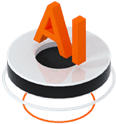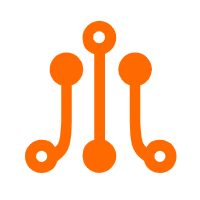We are living in the age of Big Data and artificial intelligence (AI). These technologies are changing every aspect of our lives, including how we receive healthcare. The influence of big data and AI has exciting implications for modern medicine. We will explore how these technologies are being used to improve patient care, make medical procedures more efficient, and diagnose diseases more accurately. Stay tuned for an exciting look at the future of healthcare!
How Can Artificial Intelligence (AI) Help in Healthcare?
For many, artificial intelligence in the healthcare space sounds a lot like science fiction. Visions of robots working in a laboratory may come to mind. However, artificial intelligence (AI) is a branch of computer science that utilizes a computer's ability to carry out routine tasks, solve complex problems, or build websites. For example, today, some people use a dictation app to help draft text messages or emails. Doctors and healthcare providers also use this type of technology for more efficiency while documenting notes or resource planning.
Although AI is not completely new in the healthcare space, it is only recently that we have seen its true potential. Big Data and AI are being used to develop and create exciting advances in the delivery of healthcare.
History of AI in Healthcare
AI has been used in healthcare for decades, but its potential was limited by the technology of the time. In the early days of AI, machines could not process large amounts of data quickly. For example, an AI system was used to help diagnose heart disease in the 1970s. However, the system could only analyze a limited number of patient records and was not very accurate. This made it difficult to use AI to its full potential in healthcare. Nowadays, AI is being used in healthcare more than ever before because of the advent of Big Data and powerful computer processors.
AI is being used in healthcare in ways that were once impossible. Today, AI systems can process large amounts of data quickly and are much more accurate than in the past. For example, AI systems can analyze large amounts of data to identify patterns that would be difficult for humans to find. This is leading to the development of more targeted and effective treatments.
AI in Healthcare Today
AI is being used in a variety of ways to improve patient care and make medical procedures more efficient. Here are a few examples:
- Developing new treatments for diseases
- Creating personalized care plans
- Diagnosing diseases more accurately
- Improving patient safety
- Optimizing healthcare efficiency
- Making medical procedures more efficient
Personalized Healthcare Plans
In the past, healthcare was often a one-size-fits-all approach. However, thanks to AI, we can create personalized healthcare plans for each patient. AI systems can analyze a person's medical history, lifestyle, and DNA to create a personalized care plan. This type of individualized care is more effective and can help prevent diseases before they start. For example, Alibaba Cloud has a healthcare platform that uses AI to create personalized care plans. This information can be used to create a tailored healthcare plan for the individual and care plans for health and wellness goals.
Alibaba Cloud is only one example of how AI is changing the way we receive healthcare. Personalized care plans are becoming more common. As AI technology continues to develop, we can only expect this trend to continue.
Improved Diagnoses
AI is also being used to improve the accuracy of diagnoses. In the past, doctors would rely solely on their clinical experience and judgment to make a diagnosis. However, AI systems can analyze large amounts of data to identify patterns and probabilities that may be indicative of a certain disease. This is leading to more accurate diagnoses and earlier detection of diseases.
More Precision in Surgery
AI is also being used to make surgery more precise. In the past, surgeons would use their skillstar and experience to guide them during surgery. However, AI systems can provide real-time guidance and feedback during surgery to maximize the surgeon's skill. This helps ensure the surgery is performed with the best possible outcome. For example, some centers are utilizing the help of a robot during cochlear implant surgery to achieve a slower and less traumatic insertion of a cochlear implant array. Patients benefit from this combination of a surgeon's expertise with the robot's ability to carry out this task slowly and precisely.
Optimization of Healthcare Performance and Safety
AI can optimize healthcare performance in numerous ways. For example, AI can streamline the process of scheduling appointments. This can help reduce wait times and make it easier for patients to get the care they need in a timely manner. Additionally, AI can improve communication between different members of a healthcare team. This helps ensure everyone is on the same page, so patients receive the best care possible.
Accuracy and efficiency are crucial in a short-staffed workforce to accomplish the job and maximize resources. The good news is that AI can assist in improving the efficiency, accuracy, and safety of healthcare work. For example, healthcare leadership can utilize AI to help catch any medical administration errors or privacy violations that may come up. The day-to-day business of medicine is changing, with AI helping create more efficiency and productivity than before.
Some Exciting Current Uses of AI in Healthcare
Complex illnesses can be more readily recognized and receive proper treatment due to a more streamlined, targeted approach. For example, Mayo Clinic uses a model of AI to help diagnose dizziness disorders. Dizziness has been notoriously difficult to diagnose properly or difficult to refer patients to the proper provider who can help for many years, mainly due to the variety of illnesses or disorders that can cause dizziness. Symptoms may include lightheadedness, true rotary vertigo, syncope, or a variety of other symptoms and features. The patient may need an ENT, neurologist, cardiologist, or other specialist based on specific symptoms and history. Utilizing AI to recognize the features of specific illnesses can help direct these patients to the correct provider much sooner. This is good news for everyone: fewer healthcare expenses, fewer doctor visits needed to get to the correct provider, and faster access to targeted treatment.
Mental Healthcare with AI
During the COVID-19 pandemic, there was a sharp increase in the need for mental health services. This was due to the increased stress of the pandemic and the effects of social distancing and isolation. AI is being used to provide mental healthcare in a variety of ways, including chatbots, digital therapeutics, and wearable devices.
- Chatbots are computer programs that can mimic human conversation. They are often used to provide customer service or information. Mental health chatbots can provide support and information to people struggling with mental health issues.
- Digital therapeutics are computer programs that are used to treat a variety of medical conditions, including mental health conditions. Digital therapeutics can be used to provide therapy, manage medication, and track progress.
- Wearable devices are devices that can be worn on the body. They can track activity, heart rate, and sleep. Some wearable devices also have sensors that can detect when a person is having a panic attack or feeling anxious. These wearable devices can provide information to the person's doctor, so they can get the help they need.
AI can be used to help mitigate the shortage of mental health service providers by allowing for improved access to resources for those who need them.
What's Next for Big Data and AI in Healthcare?
The potential uses of big data and AI in healthcare are endless. As these technologies continue to develop, we will see even more ways they can improve patient care. We will also see new challenges emerge, but we can overcome these challenges with the right tools and strategies in place and use Big Data and AI to transform healthcare for the better.
Michael Njunge - November 29, 2022
Alibaba Cloud Community - October 14, 2022
Rupal_Click2Cloud - July 1, 2022
Alibaba Cloud Community - June 16, 2022
Alibaba Cloud Community - January 13, 2022
Alibaba Clouder - October 27, 2020
 Big Data Consulting for Data Technology Solution
Big Data Consulting for Data Technology Solution
Alibaba Cloud provides big data consulting services to help enterprises leverage advanced data technology.
Learn More Big Data Consulting Services for Retail Solution
Big Data Consulting Services for Retail Solution
Alibaba Cloud experts provide retailers with a lightweight and customized big data consulting service to help you assess your big data maturity and plan your big data journey.
Learn More AI Acceleration Solution
AI Acceleration Solution
Accelerate AI-driven business and AI model training and inference with Alibaba Cloud GPU technology
Learn More ApsaraDB for HBase
ApsaraDB for HBase
ApsaraDB for HBase is a NoSQL database engine that is highly optimized and 100% compatible with the community edition of HBase.
Learn MoreMore Posts by Amy